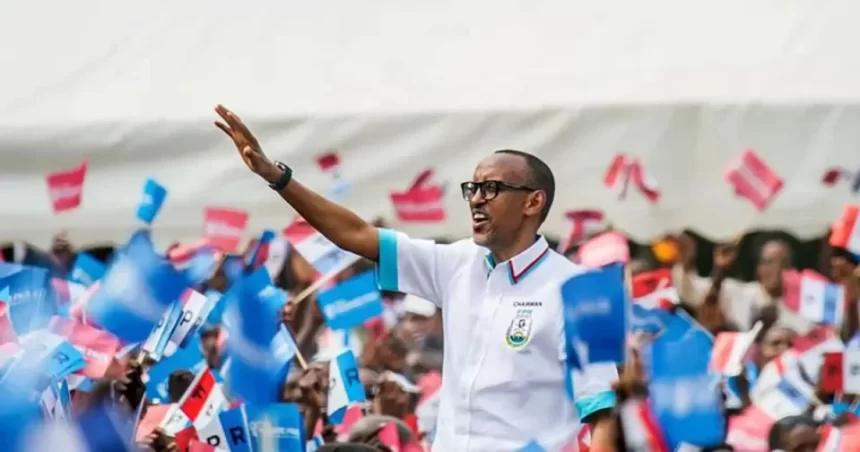Rwanda’s President Paul Kagame emphasized the distinctive nature of his country’s democracy, tailored to the “unique reality of Rwandans,” as he launched his re-election campaign on Saturday at a rally in the northern region.
As Rwanda prepares for its July 15 presidential election, the incumbent Kagame is widely anticipated to secure another term, potentially extending his 24-year leadership. Despite being lauded for steering Rwanda’s remarkable economic revival post-1994 genocide, which claimed approximately 800,000 lives, Kagame continues to face scrutiny over human rights violations and political suppression.
Addressing allegations of muzzling political opposition, Kagame indirectly responded to criticism following the Rwandan courts’ dismissal of appeals from two notable adversaries, Bernard Ntaganda and Victoire Ingabire. Both sought to overturn previous convictions that prevent them from participating in the election.
“Democracy is often misunderstood or interpreted differently by people, but we have our own understanding based on the unique reality of Rwandans and what needs to change in our lives,” Kagame stated before a crowd of thousands.
“As we commence our campaign and seek your vote, we focus on the politics of transforming Rwanda, improving the lives of Rwandans, and achieving greatness on par with or exceeding others,” he added.
Kagame’s opponents in the upcoming election include Frank Habineza, the leader of the Democratic Green Party, and Philippe Mpayimana, a former journalist running independently.
Simultaneously, legislative elections will be held, with 589 candidates vying for 80 seats in the lower house of parliament. The Rwandan Patriotic Front, Kagame’s party, currently controls 41 of the 53 seats allocated to political parties. Opposition parties hold 13 seats, with the Social Democratic Party occupying 5 and the Liberal Party 4. The remaining 27 seats are designated for women elected by provincial councils, as well as representatives of youth and disabled groups.
In addition to the disqualification of Ntaganda and Ingabire, Diane Rwigara, a prominent critic of Kagame, was also barred from the election by the commission, citing insufficient proof of 600 supporting signatures from citizens. Rwigara, who had previously clashed with Kagame’s party leadership, was detained and disqualified in 2017 over allegations of forgery, though she was later acquitted.
In a separate development, President Kagame, in an exclusive interview with France 24, asserted Rwanda’s preparedness to engage in conflict with the Democratic Republic of Congo if necessary, declaring, “they are ready to fight and are not afraid of anything.”

